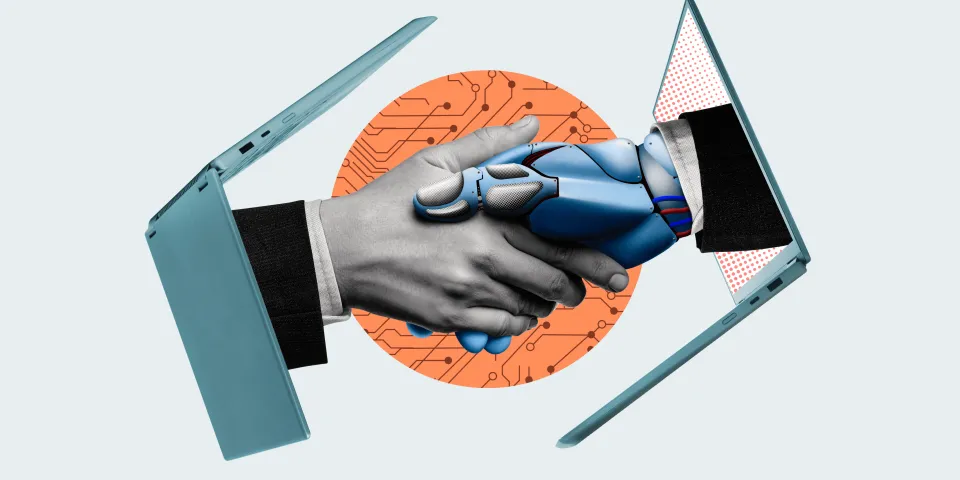Latest
Will Computer Science Be Replaced by AI?
Apr 29, 2025

In recent years, artificial intelligence (AI) has made remarkable strides, leading many prospective students to question whether pursuing a computer science degree is still worthwhile. This concern is valid—after all, if AI can write code, what's the future for human programmers? Despite these technological leaps, computer science continues to thrive as a discipline, though its landscape is undoubtedly changing.
Understanding the AI Revolution
Artificial intelligence enables machines to mimic human intelligence, including learning and problem-solving capabilities. The recent explosion of generative AI tools like ChatGPT and GitHub Copilot has demonstrated impressive abilities to produce code based on simple prompts, raising legitimate questions about the future of programming as a profession.
These tools leverage sophisticated machine learning models and can generate functional code snippets in seconds —a task that might take a human developer minutes or hours. This efficiency has naturally led some to wonder if human programmers will soon become obsolete.
Why AI Won't Replace Computer Scientists
Despite these impressive capabilities, AI has significant limitations that prevent it from replacing human programmers entirely. Programming is fundamentally about problem-solving, creativity and communication—uniquely human capabilities that AI struggles to replicate.
While AI excels at generating code for well-defined problems, it lacks contextual awareness and critical thinking skills. It cannot fully understand client needs, business objectives or the broader implications of its code. Interestingly, AI's growth is creating more demand for software development, not less—expanding rather than shrinking opportunities for skilled programmers.
The Evolving Role of Programmers
Rather than replacing programmers, AI is transforming their roles. Today's computer science professionals are learning to incorporate AI tools into their workflows, using them to handle repetitive coding tasks while focusing their human creativity on complex problem-solving and system architecture.
This collaboration between humans and AI leverages the strengths of both: AI's speed and efficiency combined with human creativity, ethical judgment and ability to understand nuanced requirements. Programmers are becoming AI supervisors, ensuring that the generated code meets quality standards and aligns with project goals.
What This Means for Computer Science Students
For prospective students, the rise of AI should be seen as an opportunity rather than a threat. Computer science degrees remain incredibly valuable because they teach fundamental principles that transcend specific technologies. University professors emphasize that core skills in problem-solving, software engineering and communication are still essential and cannot be replicated by AI.
Students who learn to work alongside AI tools will be well-positioned for future success. Rather than fearing displacement, they should focus on developing skills that complement AI capabilities, such as:
- Higher-level system design and architecture
- Critical analysis of AI-generated solutions
- Effective communication with clients and stakeholders
- Ethical considerations in software development
The Future is Collaborative
The future of programming involves human-AI collaboration, not replacement. As coding tools continue to evolve, the role of programmers will shift toward higher-level thinking, debugging complex systems and managing the increasing complexity of software projects.
This shift mirrors historical patterns in technology adoption. Just as calculators didn't eliminate the need for mathematicians or word processors the need for writers, AI coding tools won't eliminate the need for skilled computer scientists. Instead, they'll elevate the profession by removing tedious aspects and allowing greater focus on creative, meaningful work.
If you're considering a computer science degree, be reassured that your skills will remain in demand despite—and because of—AI advancements. The field is evolving rather than disappearing, offering exciting new possibilities for those who embrace change.
By learning to leverage AI tools effectively while developing your uniquely human capabilities in problem-solving, communication and critical thinking, you'll be well-prepared for a rewarding career in this dynamic field. The future of computer science isn't about competing with AI, it's about collaborating with it to solve increasingly complex problems.
Learn More About Our Computer Science Program
BLS pay estimates calculate the median annual wage for various occupations. Per the BLS the median wage for an occupation is: "The wage at which half of the workers in the occupation earned more than that amount, and half earned less. Median wage data are from the BLS Occupational Employment and Wage Statistics survey." Bureau of Labor Statistics (BLS), U.S. Department of Labor, Occupational Outlook Handbook 2024. BLS median wage estimates do not represent entry-level wages and/or salaries. Multiple factors, including prior experience, age, geographic market in which you want to work, and degree level and field, will affect career outcomes, including starting salary and earnings as an experienced employee. Herzing neither represents that its graduates will earn the median salaries calculated by BLS for a particular job nor guarantees that graduation from its program will result in a job, promotion, particular wage or salary, or other career growth.
Latest
Recent Blog Posts
Subscribe to our Newsletter
Get the latest news you need to know, from study hacks to interview tips to career advancement. Have it delivered right to your inbox biweekly.








